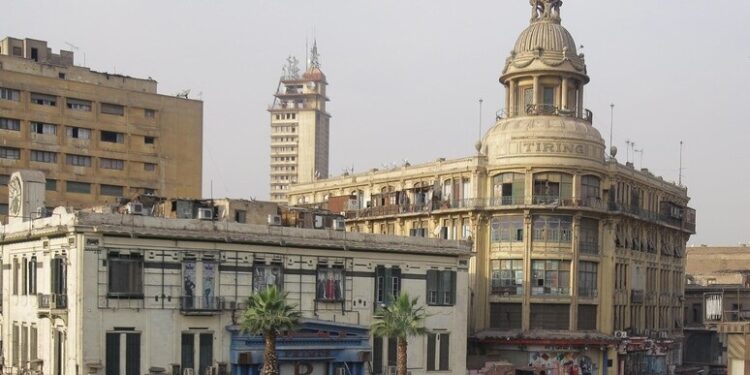Cairo has been ranked as the most polluted city in the world this morning by the Air Quality Index (AQI), an organization accredited by the World Health Organization (WHO). This dubious honor comes amid soaring temperatures exceeding 40 degrees Celsius since Monday and particulate matter levels more than 16 times higher than WHO’s recommended limits.
According to AQI, the situation is expected to improve slightly starting tomorrow, bringing an end to a series of pollution peaks that have plagued the city since the beginning of the week.
Today, the air quality index stands at a staggering 170, with temperatures ranging between 38 and 26 degrees Celsius. The level of particulate matter (PM 2.5) has reached 83 micrograms per cubic meter, far exceeding the safe threshold of 25 micrograms per cubic meter recommended by the WHO.
Cairo’s metropolitan area, home to 20 million residents, is the largest in Africa, the Arab world, and the sixth largest globally. The air quality in Cairo has significantly deteriorated over the past three years. At the beginning of 2021, the air quality index was 91, highlighting a dramatic decline. Researchers attribute the primary cause of this deterioration to vehicular traffic, predominantly consisting of outdated and poorly maintained vehicles.
Given the extreme temperatures and high pollution levels, the WHO advises residents to minimize outdoor activities and wear masks if they must go outside. Outdoor exercise is strongly discouraged. The health risks associated with such pollution levels are severe, affecting respiratory and circulatory systems, among other health parameters.
To address this crisis, the city has recently inaugurated a new metro line, introduced electric taxis, and relocated its administrative center outside the city. These measures aim to reduce congestion and pollution in the urban core.
The escalating pollution crisis in Cairo is a reflection of broader environmental and public health challenges. Traffic congestion is a significant contributor to air pollution. The city’s streets are often clogged with vehicles, many of which are old and emit high levels of pollutants. Efforts to modernize the public transportation system, including expanding the metro network and promoting electric vehicles, are steps in the right direction. However, these initiatives need to be part of a larger, more comprehensive strategy to effectively tackle air pollution.
The impact of pollution on the health of Cairo’s residents is profound. Short-term effects include respiratory problems such as asthma and bronchitis, while long-term exposure can lead to chronic respiratory diseases, cardiovascular issues, and even cancer. Vulnerable groups such as children, the elderly, and those with preexisting health conditions are particularly at risk.
Cairo’s battle with pollution is emblematic of a global issue affecting many major cities. As urban populations grow, so do the challenges of managing air quality. Sustainable urban planning, investment in clean energy, and stringent emission regulations are crucial components of a successful strategy to combat pollution.
The city’s recent efforts to improve air quality, including the development of green infrastructure and promotion of public transport, demonstrate a commitment to addressing the issue. However, sustained efforts and international cooperation will be essential to achieve lasting improvements.
As Cairo continues to grapple with its pollution crisis, the health and well-being of its residents remain paramount. The city’s ability to implement effective solutions will not only improve air quality but also serve as a model for other cities facing similar challenges. The journey towards cleaner air is long and arduous, but with concerted effort and innovative approaches, Cairo can hope to shed its title as the world’s most polluted city and become a healthier place for its millions of inhabitants.














































